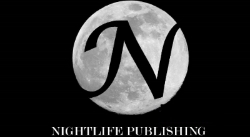It is counter-intuitive to try and measure the progress of art that is being created. As far as I know,
composers don't count the number of notes they put in a new song. Dancers don't
count their steps. Painters don't agonize over the number of brush strokes per
day. But when I hear writers talk about their work, the number of words they put down per session or the number of pages
they write is a barometer of progress. Why? Is this kind of measure
helpful? Does it even make sense?
Wasted Words
Like most writers, I keep track of the number of
words I string together in each session. There
is an emotional boost that comes from knowing that I saved 1,500-2,000 words
after an evening of creating lies. Is that uplifting feeling a sham?
If I write 2,000 words of exposition that has to
be cut later, wouldn't it be better to write 100 words that show instead of
tell? I can write 60, 70, 80,000 words or more, but if the story has to be
trashed because it's horrible then what was the point?
Between 1993 and 1999, I wrote a science fiction
novel called The Salvation Strategy. It
was 120,000 of the most convoluted, derivative and scatter shot words ever linked
together in desperation. It will never see the light of day. The only reason
I'm admitting to it is because I know no one will ever read it.
Is Fewer Better?
When I decided to start
writing fiction again in 2012, I thought
that word count didn't matter as much as progress within the particular story.
I work from a detailed script (See Building
a Better Plot) so as I write I'm aware of how much of the story I've told
and how far I have to go. Knowing my narrative destination gave me a mental
finish line that seemed more relevant than endlessly throwing words on the page,
hoping that some critical mass of content could turn my story from a disjointed
mess into a masterpiece. This idea trickled down into my reading, I routinely
avoided authors who I felt released books that were bloated and unwieldy. I
suppose on a certain level, I became a minimalist snob.
Writing Exercises
But I recently came to a
revelation; the practice of writing is
similar to exercising in the gym or training for a sport (See Why
Your Writing Practice is Like Your Gym Membership). If each word is a rep and
each writing session is a workout, then my craft can become stronger as I continue
writing. Seen from that standpoint, my Salvation
Strategy wasn't snafu seven years in the making. It was a process of
squeezing the cliché out of me, to let some fresh ideas push through. It taught
me both how to find my own voice and develop the mental stamina to write. If I
didn't go through that 120,000 process, my craft might not be as good as it is
now. (I'm sure some people think I need to practice for another seven years
before my writing is any good, but that's not the point of this story.)
Keep Writing
Keep Writing
Authors of writing books
like Stephen King, Robert McKee and David Morrell urge us to keep writing.
Their advice has merit on several levels. The more we write, the more we can
learn about writing and about ourselves. This can improve the quality of our
stories no matter how long they are. The dancer might not count her steps, but
she will practice constantly before a big performance. A composer doesn't count
notes, but does experiment night and day with different arrangements before the
song is done. The writer's words are our practice. The more practice, the
better the writing will be. Some writers do focus on word count as an end in
and of itself, but the key comes not from how many words are used, but how we find
the right words.
What do you think? Does
my analogy of word count as exercise make sense or are stories simply better if
they have more words? Please comment below and let me know.
Have fun.
Gamal

